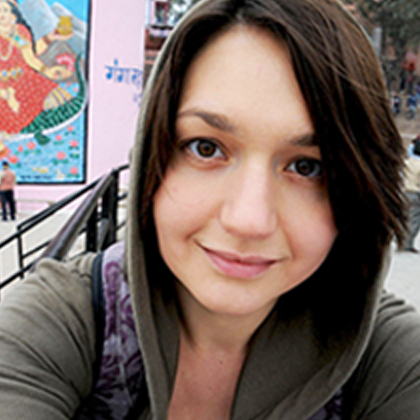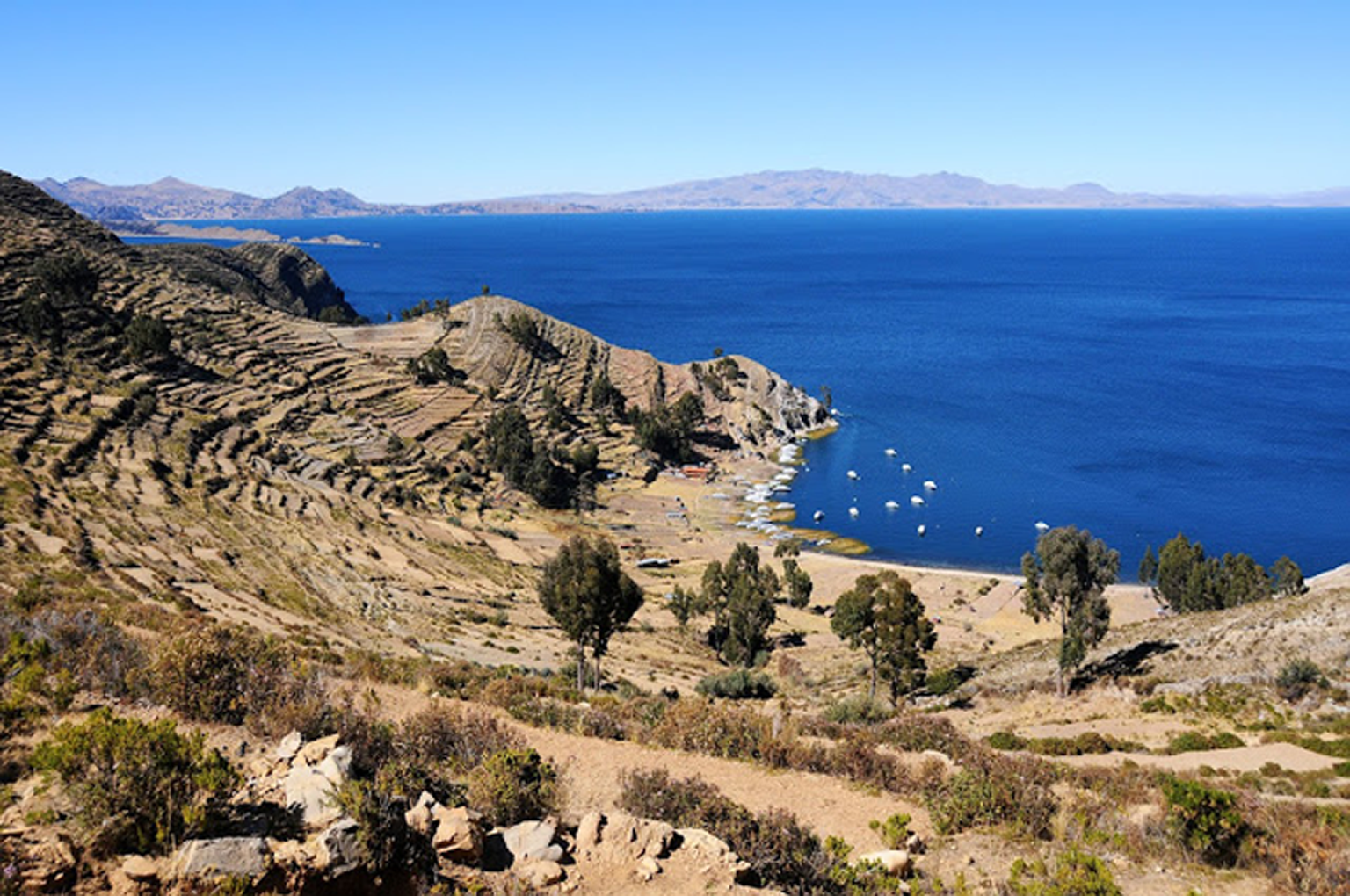- Posted by:
- anjci
- Under:
- Eurovision
This year’s contest was the closest in a long time. Denmark’s Emmelie de Forest eventually outpaced her main rival, Azerbaijan’s Farid, to score the third ever Eurovision victory for Denmark. Her Shakira-esque Only Teardrops featured bare feet, drums and a flute theme; it collected a total of 281 points, eight of which were 12-point tickets. Azerbaijan’s runner-up Hold Me actually received more top scores – 10 in total – but stayed second with 234 points. Despite the tight race, these results didn’t really surprise anyone; Denmark was widely tipped to win while Azerbaijan holds the highest average Eurovision score of the last decade.
This year introduced some changes to the usual set-up of the show. First, realising the importance of the occasion, the male half of former ABBA got together to pen a designated Eurovision anthem, We Write The Story, which opened the show. Second, likely inspired by the recent Olympic Games, the organisers let the 26 competing artists parade their flags over an improvised bridge – echoing the Øresund Bridge that connects Sweden with Denmark, mere minutes from the venue. Third, the running order of the songs was not determined randomly but, for the first time ever, dictated by the producers, apparently to help avoid certain “lulls” created by consecutive songs sounding too similar. And, in case this didn’t spark enough controversy, each national result combined the usual televote with the decision of a five-member jury. Introduced to allay certain countries’ concerns about Eurovision’s trademark bloc voting, this move sadly infuriated a few others. Turkey withdrew its participation from the 2013 contest, citing disagreement with the revised voting system. Oh well, no Sasha Baron Cohen lookalikes this year, then.

Returners and gone missing
Besides Turkey, several other last year’s participants decided to skip Eurovision this time around. Portugal and Slovakia have never really stood out in the contest anyway. The country whose absence I noticed immediately, however, was Bosnia & Herzegovina, which withdrew due to financial difficulties. With disappointment did I come to terms with the fact that another Elvir Laković would not be jumping out of a box in the middle of the stage to his little sister doing the backing vocals. Not even Zlatan Ibrahimović’s special words of welcome to Malmö, his home city, could fill in that Bosnia-shaped gap.
Thankfully (or tragically, perhaps), some countries and artists re-joined the contest after a brief absence. Armenia last performed at Eurovision 2011 but looked to have descended straight from the 1980s with their double denim outfits. San Marino sent Valentina Monetta, the same singer as last year, who sadly again failed to qualify for the finals. Bulgaria’s Elitsa Todorova and Stoyan Yankulov last presented Bulgaria in 2007, scoring 5th (their country’s best result to date). Unfortunately, they, too, failed to make it past the semis.
Some trends: ethnic is so last decade
Unlike several recent contests, the 2013 Eurovision was surprisingly lacking in ethnic music. The only two exceptions were Bulgaria’s Samo Shampioni (Only Champions) – which, as mentioned, failed to live up to its title – and Croatia’s Mižerja (Misery), which sadly did. The former combined Balkan rhythms with a form of trance, while the latter pulled together six members of several klapas – Dalmatian a-capella singing ensembles.
Traditional music aside, while current Eurovision rules allow the artists to perform in any language of their choice, it is refreshing to see that not all songs end up being sung in English. In the two semi-finals, just over a half of all songs from non-English speaking nations – 17, to be precise – were performed in national languages. By the decisive night, this number had shrunk to 8 out of 23. Among the usual suspects France, Italy and Spain – three automatic qualifiers who nearly always stick to their mother tongues – two surprises came in the face of Greece and Iceland. For Greece, it was the second song to be sung in Greek since 1998, while Iceland last used Icelandic at Eurovision in 1997. One could argue that the Anglophone chorus of Greece’s wonderful Alcohol Is Free broke the trend but, before Eurovision relaxed its language rules, three foreign words was precisely the allowed limit per song. Fresh is still my memory of the (otherwise rather forgettable) Austrian 1997 entry, sporting a clumsy chorus of “one step forward… und zwei zurück”. I am sure we are all glad the language restrictions at Eurovision have been lifted since.
That said, those Eurovision lyrics are sometimes best not understood rather than being translated into primary school English. I am still recovering from San Marino’s last year’s take on Facebook (“if you wanna come to my house, then click me with your mouse”), but 2013 was also blessed with less-than-genius song writing. Sentimental platitudes aside, the worst-lyric title goes to Lithuania’s Andrius Pojavis. Somehow he didn’t win in the end; because of my shoes, perhaps.
My other stage is an operational one
In case anyone had any doubts, this year’s contest notably featured artists who are not even singers. Hungary’s ByeAlex is in fact a journalist in everyday life and edits a regional magazine in eastern Hungary. Belarus’s Alyona Lanskaya is a TV celebrity and has starred in a local sports reality show. Estonia’s Birgit, Iceland’s Eythor Ingi and Finland’s Krista Siegfrids are all theatre artists, the former having even sung the part of Maria von Trapp in a local staging of The Sound of Music. They were, however, all outdone by Malta’s Gianluca who, despite stemming from a highly musical family, currently practises his main profession as a medical doctor. I only hope there were no medical emergencies in Malta last Saturday night.
Among these amateurs, the UK was clearly holding out for a hero with its veteran entry in the shape of Bonnie Tyler. Following last year’s Engelbert Humberdinck, it is great to see that we are finally finding good talent in the UK. Believe in Me collected a few votes (thank you, Ireland, for the entire 7) and likely caused a sigh of relief at Number 10, as we couldn’t possibly afford to host Eurovision after the whole Olympics extravaganza and the funeral of Baroness Thatcher.
Tit for tat, neighbour
Possibly the saddest fact about this year’s Eurovision was the absence of former Yugoslavia in the finals. Serbia merged three long-legged local talent show success stories – a recipe for disaster, as we all learned. I last saw the singing trio dragged away by the fashion police. Croatia’s Dalmatian tune entered the wrong contest. Montenegro competed with an eclectic mix of hip-hop and house music (yes, really), with a predictable outcome. I wish I could say the Slovenian entry was better but fail even to remember it. I think it was the only one to be sung in English, however – as always, Slovenia likes to be different.
Without the ceaselessly cross-voting Balkan neighbours, the national results were disappointingly less predictable. Croatia didn’t exchange a “douze” with Bosnia, and Montenegro didn’t dish out its top points to Serbia. I almost felt let down by the absence of the same bloc voting I get grumpy about every Eurovision. To worsen matters, many halves of the shameless “best friends” went missing in the finals – Azerbaijan was there but not Turkey, Greece was there but not Cyprus, and Spain was there but not Portugal. I nearly sighed with relief when Romania awarded its 12 points to Moldova – but the latter failed to return the favour, rationing a “mere” 10 to its linguistically close neighbour. Whatever has gone wrong with Eurovision?
So the only two “golden” handshakes of the night were Ukraine and Belarus, and the Netherlands and Belgium. The missing Balkans prolifically voted for Scandinavia. In the absence of Turkey, Germany surprised us all by highlighting Hungary. Greece gave 12 points to Azerbaijan. You know the rest.
…and a few more surprises
It wouldn’t have been Eurovision without a few interesting memories. Moldova gets my undisputed best outfit award for the singer’s huge self-lit red frock. I think I even used to own a Barbie doll with exactly the same outfit.
The most eccentric performance award goes to Romania’s Cezar with It’s My Life. The singer is a professional countertenor, has sung at several European opera houses and worked with world class musicians. I still kept getting a creepy feeling that the falsettoing singer, dressed immaculately in a black shiny suit, was about to crawl out of the screen and get me. Or worse, turn into a bat and fly away.
The prize for the best lyric decidedly goes to Finland. “Skipping dinner to get thinner, where is my proposal?” is no doubt close to many a fellow female heart out there. “Marry me, I’ll be your queen bee”, Krista Siegfrids continued, and kissed one of her female co-performers. As the rumour goes, this widely advertised lesbian kiss was among the reasons a certain country refused to broadcast the event. I fail to get the hype though; in the words of the UK’s presenter, Graham Norton, those offended by two women kissing need to grow up.
Moving on to worst dance, we have an undisputed winner in Roberto Bellarosa’s Love Kills, representing Belgium. Well, I admit to having nearly missed the singer as his two clone-looking dancers stole all of my attention. Seriously, if love doesn’t kill you here, choreography certainly will.
Other memorable moments include Norway’s Margaret Berger (whose I Feed You My Love seemed to clash with the tune), Ukraine’s Zlata Ognevich (carried to the stage by an authentic giant), Spain’s ESDM (whose bagpipe intro briefly made me fear that Runrig had gate-crashed the contest) and Belarus’s Alyona Lanskaya (who seems to have made things up with President Lukashenko after being personally disqualified by him last year).
What came as a great surprise is that Ireland were not represented by Jedward this year. And an even greater surprise? That so many of us would hear ourselves saying “We miss Jedward”. Ryan Dolan’s Only Love Survives sounded like a cover version of the most average Eurovision song of the decade. Seriously, Ireland – we want Jedward back.
In conclusion, I know that at least three artists left the event happy. First, Denmark’s Emmelie de Forest, for obvious reasons. Second, Malta’s Gianluca – undoubtedly the happiest chap ever to sing at Eurovision. Finally, good old Greece. They couldn’t possibly host the event next year – the IMF wouldn’t understand, for a start – but have fun they certainly did. And if small instruments and men in skirts isn’t quite your formula for success then free alcohol might just be. Watch out next year, Copenhagen.











Giannina says:
August 9, 2018 at 8:44 pm
This was my first Eurovision Song Contest. I started following it because there was Marco Mengoni, my favorite Italian singer. From then on Eurovision Song Contest is a standing appointment. That year I appreciated Aliona Moon from Moldova, with O Mie. And Eyþór Ingi Gunnlaugsson from Iceland with Ég Á Líf. And also the winner is nice. I still listen to these songs sometimes!
anjci says:
August 10, 2018 at 10:44 am
Haha, I love all your comments on the Eurovisions gone by, Giannina! Eurovision is definitely my favourite event of the year… beating my own wedding and engagement in their respective years, haha : ) Call me nuts! I remember the 2013 Eurovision Song Contest dearly… it was just bonkers! My fondest memory is the creepy background dance routine of the Belgian entry, “Love Kills”. Just precious!
anjci says:
October 29, 2013 at 11:24 am
I am indeed a Eurovision freak, ain't I? Thank you for these kind words. The "impressive analysis" has its shortcomings – our Skype chat was arguably the most enjoyable part of the entire show as, the rest of the time, I was taking notes like crazy.
Can't say I was won over by the Danish entry myself, but listenable I think it is! Let's see what happens next year. The final is on Saturday, 17 May 2014.
Daniel Hoch says:
May 24, 2013 at 2:28 pm
Anna, What an impressive analysis! Really enjoyable reading. I feel privileged to have had the opportunity to "chat" with the author during the show. Hopefully you welcome a few of my thoughts on the subject as soon as I find the time. … Still can't make it through all 3min 3sec of the Danish song! Teardrops is right. 🙂
Comments are closed.